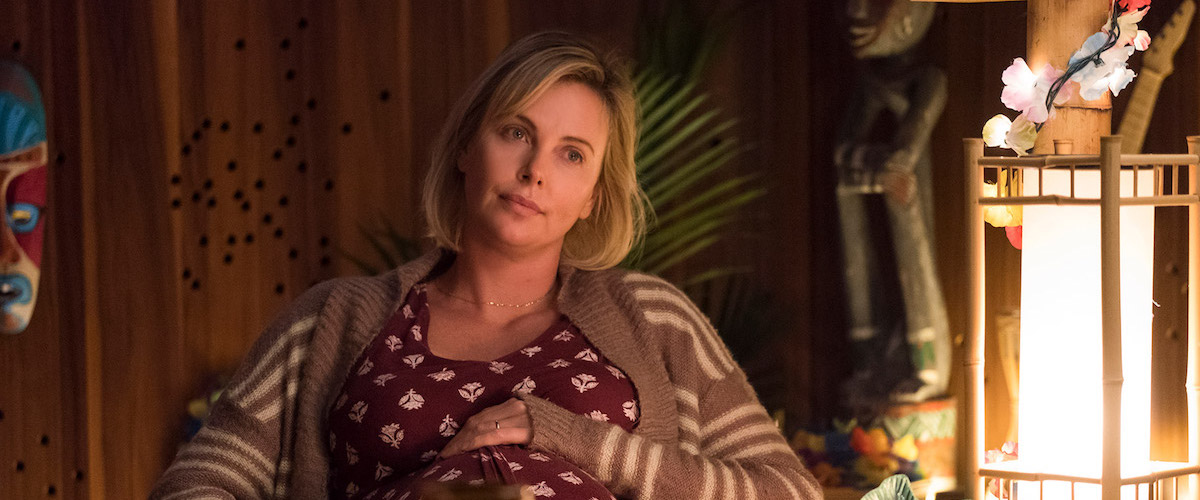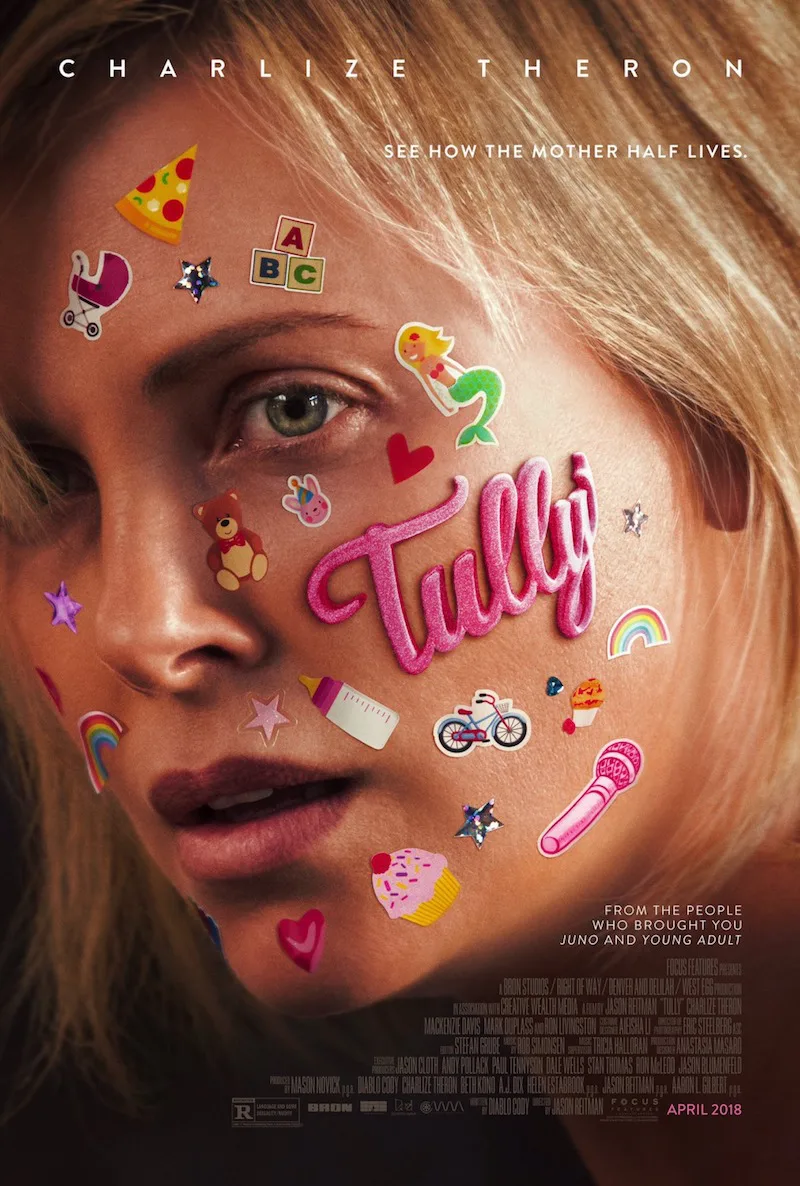Having a kid is hard. Having three kids—one of whom is a newborn baby—isn't just three times harder. The challenges increase exponentially to the point of surrealism, a sensation writer Diablo Cody and director Jason Reitman nail with their latest comic drama, "Tully."
In their third collaboration, Cody and Reitman have crafted no confectionery ode to motherhood. There's no wacky mad dash to the hospital, followed by cataclysmic screams for comic effect. In the same vein as 2007's "Juno" and 2011's "Young Adult," "Tully" unearths uncomfortable truths in a wry, wise way. It features Cody's hyper-verbal brand of snark, cynicism and subtle poignancy, but it's tinged with the wistful perspective that comes from hard-earned maturity and experience.
Cody's characters are growing up along with her; she actually wrote "Tully" after having a third child of her own, and the fact that this is such a personal story shines through from the very beginning. It's at once intimately detailed and narratively ambitious. And it's surprisingly profound, sneaking up on you with understated yet wholly earned emotion by the end.
Having Charlize Theron at the center once again gives "Tully" so much of its power. As she showed playing the stunted prom queen of "Young Adult," Theron isn't afraid to be unlikable, to get messy. Here, she visits deep, dark places within the female psyche as well as the sanctity of suburbia, and her every moment on screen (which is pretty much every minute of the film) vibrates with hilarious, brutal honesty.
We actually see her belly before we even see her. Theron's Marlo is days away from giving birth to her third child—which wasn't exactly planned at age 40—and she's about to pop. She already has an 8-year-old daughter, the sweetly insecure Sarah (Lia Frankland), and a 6-year-old son named Jonah (Asher Miles Fallica), who's somewhere on the autism spectrum and on the verge of being kicked out of kindergarten. Her husband, Drew (an appropriately low-key Ron Livingston), means well, but he often travels for work and doesn't really understand what it takes to keep the household functioning on a daily basis.
Whatever delicate balance they'd achieved gets obliterated with the arrival of baby Mia. The subtle look on Marlo's face once she's given birth isn't one of euphoria or even exhausted pride. It's something closer to detached anxiety: Change is coming, and she knows she needs to deal with it, but she's just not ready.
Enter Tully (Mackenzie Davis), the night nurse Marlo's wealthy, smug brother (Mark Duplass) has offered to hire as a gift to her. At first, Marlo is offended at the suggestion that she can't mother her children on her own, but she gives in once the delirium of sleep deprivation takes its toll. "Tully" vividly and efficiently depicts the isolating nature of those early days at home with an infant: a never-ending cycle of feeding and pumping, crying and diaper changing, when you can't recall at the end whether you've set foot in the outside world, much less showered or brushed your teeth. Marlo has two other kids who need attention, too, and she finally acknowledges that she could use some help.
Tully is that, and so much more. Perky and fit at 26, she's Mary Poppins in a belly-baring tank top, full of wisdom beyond her years about a wide variety of topics. She's plucky and quirky, wide-eyed and openhearted, a down-to-Earth free spirit who always has the right bit of advice for every situation. She also tidies up the house overnight while Marlo catches up on much-needed sleep, and even finds time to whip up some whimsical cupcakes for Jonah's class.
She's a nanny pixie dream girl—or at least, that's what she initially seems. Cody's characters are far more complex than the superficial facades they've constructed for themselves might suggest, and that's especially true of Tully. Watching Theron engage with the hugely appealing Davis is a joy to watch. They have tremendous chemistry from the get-go, which only deepens and becomes more compelling as they get to know each other over nights of sangria and reality TV. (Marlo has a thing for the guilty-pleasure "Gigolos" on Showtime.)
Tully reminds Marlo of who she used to be at that age, when she lived a boho chic life in a Brooklyn loft. And she tries to enlighten Marlo about the woman she's become years all these later—not just a wife and a mom, but a great mom: "Great moms organize class parties and plan casino nights," Marlo insists. (As one of those moms myself, I can assure you: We don't necessarily think we're great moms, either.) It's sad and universally relatable, but we really should give ourselves more credit.
The ultimate message of "Tully" is the importance of self-care: When everyone's relying on you to take care of them, you need to take care of yourself first. Also: just because you've created a person, that doesn't mean you have to abandon entirely the person you used to be. That all may sound trite or New Agey or both, but it's worthwhile.
Like "Young Adult," "Tully" actually could have been a little longer. You want to spend more time with these fascinatingly flawed, deeply human characters. As Tully puts it when she suggests that Marlo should kiss her baby good night before going upstairs to sleep: "She'll be different in the morning—and so will we." The sense of possibility within those changes is what's exciting.




















